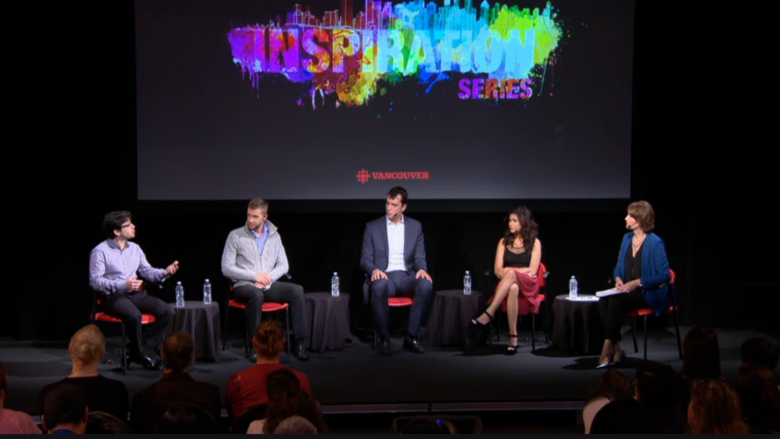Age of Anxiety: Speaking up and sharing the struggle helps
When Vanessa Stewart was diagnosed four years ago with major depression and general anxiety disorder, she felt alone — and didn't tell anyone about her mental illness, other than her parents.
For about a year she stayed in her room, barely getting out of bed.
But when her parents eventually convinced her to attend one of the Canadian Mental Health Association's Ride Don't Hide events, she realized she wasn't alone.
"I started to cry because there were hundreds and hundreds of other people there," Stewart said.
"Everyone else had the same situation."
Stewart attended CBC Vancouver's Age of Anxiety event on Oct. 3, sharing part of her story during the question and answer portion moderated by CBC host Gloria Macarenko.
About 150 people attended the event, which featured three young people sharing their experiences with various forms of anxiety, as well as a panel of mental health experts.
Speaking up
Stewart told the audience that it was at that Ride Don't Hide event that she decided to speak up about her mental illness — telling the rest of her family and friends, as well as a wider audience through her blog.
"The amount of people that have come to me with their own personal stories...and the amount of support I've gotten from people by speaking openly about it, is amazing," she said.
"I never thought in a million years I would get that kind of support."
Her mental illness is an ongoing challenge however — she said she has been hospitalised four times over the past summer.
But she's getting treatment, and sharing her struggles with others helps.
Her father Richard Stewart, the mayor of Coquitlam, said he's proud that she is fighting the stigma that is often associated with mental illness.
"I'm encouraged to hear how much that friendship network plays a role in managing anxiety, or any of the illnesses Vanessa suffers from.
Dr. Keyvan Hadad, a pediatrician at BC Women's Hospital, said that facing one's mental illnesses, and getting support from family members, is very important — and said that's something parents with anxious children can do.
"This is not a symptom that you will conquer the next day, it's not like an ear infection that you can cure and it's gone next week. It's potentially a long-lasting symptom, and as such, much of it is owning the symptom ... and coming up initially with very basic strategies that often are extremely helpful."
Resources
For those experiencing anxiety and depression — or those who want to help someone they know, there are resources available.
Some of these include:



